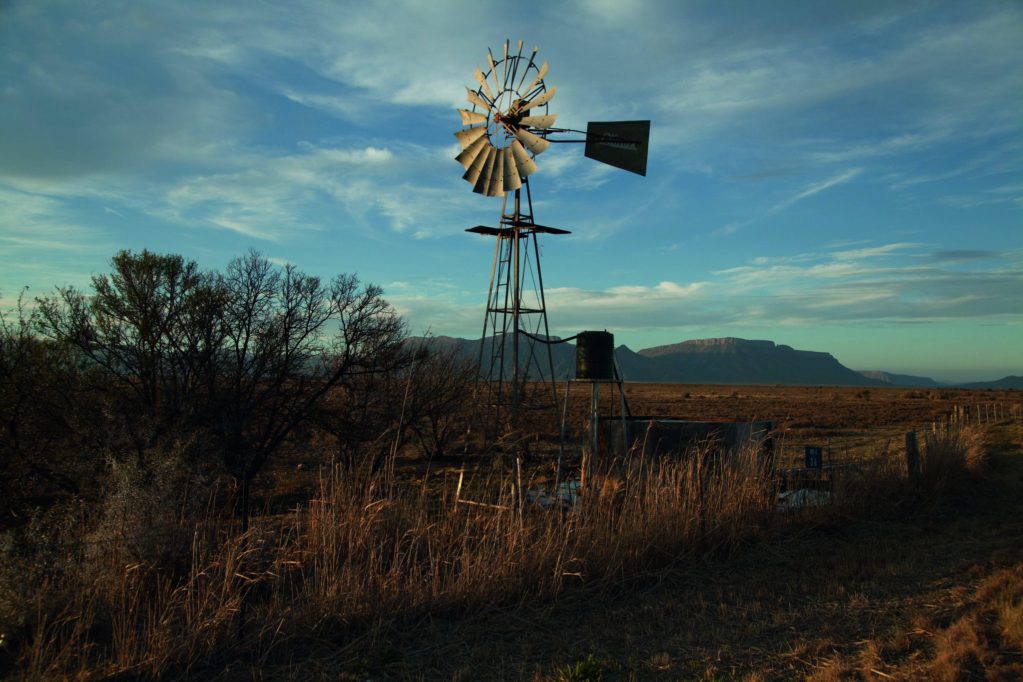It was a long walk to farming for Marlin De-Jager, ending at a 3,000 hectare plot, near Aberdeen. In these parts, De-Jager’s background is as rare as the famous Karoo lamb. His persistence, as solid as the rocks on his land.

He was born and raised by a single parent after his father walked out. He skipped town while in high school after a brawl at a rugby game. He wound up struggling in the Western Cape province digging a train tunnel along the Hex River.
A few years later, he returned to Aberdeen and changed his fortunes by starting his own farming business; buying unwanted sheep with black wool from farmers and selling the mutton.
“When you slaughter something, it doesn’t matter what their hair looks like. When the skin is off it doesn’t matter. That’s how I started,” says De-Jager.
Loading...
Next, he bought 21 small pieces of communal land and taught the community how to plant gardens.
Last year, after 20 years of saving, he bought his own farm for R4.2 million ($420,000).
“As an emerging farmer, I want to become a commercial farmer. For me, one day, it’s to see my son and his children also becoming commercial farmers,” he says.
One morning, De-Jager read about fracking in the newspapers.
“I was very interested to know how it works. For me, I don’t know how they are going to get it right. Water underground is like blood in the veins. To stop one vein affects the whole body,” he says.
Since then De-Jager has been talking to his community one-by-one.
“I’m only a drop in the ocean. I am trying to convince the colored community about my concerns with fracking. Our people are mostly small farmers. I sat and asked them about fracking. They said ‘we haven’t got land so why must we worry?’ That is their view. I don’t think they realize what will happen,” he says.
De-Jager fears many people don’t understand what fracking means and believes energy companies are taking advantage of this.
“They [fracking companies] don’t care about the land. They care about their pockets. You can see all the big companies. They are sitting there and making their money. Then when it’s finished, they pack up and leave and we must deal with the land,” he says.
The emerging farmer intends to fight fracking before it happens, he says. De-Jager doesn’t want to see the farm he spent so long saving for, destroyed, before his son takes over.
Loading...
